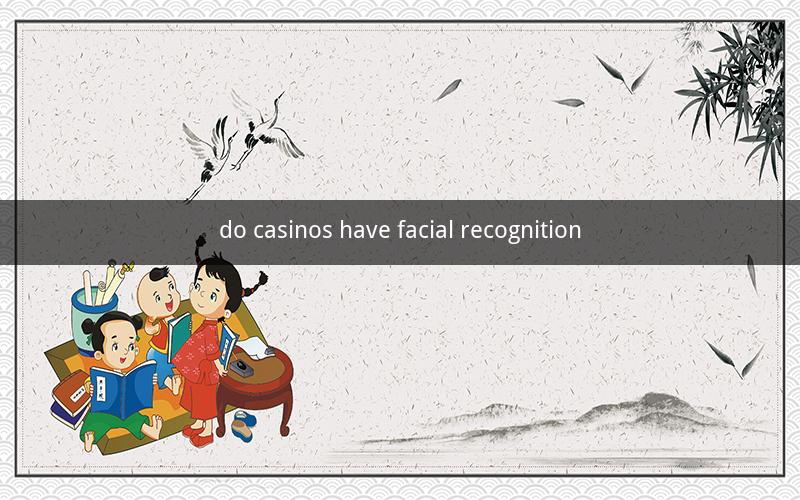
Table of Contents
1. Introduction to Facial Recognition Technology
2. The Role of Facial Recognition in Casinos
3. Legal and Ethical Considerations
4. Implementation and Challenges
5. Benefits and Drawbacks
6. Public Perception
7. Future of Facial Recognition in Casinos
1. Introduction to Facial Recognition Technology
Facial recognition technology has become increasingly popular in various industries, including the gaming sector. This innovative technology uses algorithms to identify and verify individuals based on their facial features. With advancements in artificial intelligence and machine learning, facial recognition systems have become more accurate and efficient.
2. The Role of Facial Recognition in Casinos
Casinos have started integrating facial recognition technology to enhance security, improve customer experience, and prevent fraud. Here are some key roles of facial recognition in casinos:
Security: Facial recognition systems help casinos monitor their patrons and identify individuals with a history of criminal activity or those banned from the premises.
Fraud Prevention: The technology can detect duplicate accounts and prevent individuals from using someone else's identity to play games or withdraw cash.
Customer Experience: Casinos can personalize the gaming experience by recognizing players and offering tailored promotions and rewards.
Age Verification: Facial recognition ensures that individuals under the legal gambling age are not allowed to enter or play games.
3. Legal and Ethical Considerations
The use of facial recognition technology in casinos raises several legal and ethical concerns:
Privacy: Critics argue that facial recognition infringes on individuals' privacy rights, as it involves collecting and storing personal data.
Bias: There is a risk of bias in facial recognition systems, which may result in incorrect identifications or discrimination against certain individuals or groups.
Data Security: Casinos must ensure that the personal data collected through facial recognition is stored securely and protected from unauthorized access.
4. Implementation and Challenges
Implementing facial recognition technology in casinos involves several challenges:
Cost: The technology requires significant investment in hardware, software, and training.
Integration: Integrating facial recognition systems with existing casino infrastructure can be complex.
Accuracy: Ensuring high accuracy in facial recognition systems is crucial to avoid false positives or negatives.
5. Benefits and Drawbacks
The benefits of facial recognition technology in casinos include improved security, enhanced customer experience, and fraud prevention. However, the drawbacks include privacy concerns, potential bias, and data security risks.
6. Public Perception
Public perception of facial recognition technology in casinos varies. Some individuals believe it enhances security and improves the customer experience, while others are concerned about privacy and data security.
7. Future of Facial Recognition in Casinos
The future of facial recognition in casinos appears promising, with ongoing advancements in technology and increased acceptance among the public. However, addressing legal, ethical, and privacy concerns will be crucial to ensure the successful implementation of facial recognition in casinos.
---
10 Frequently Asked Questions and Answers
1. Question: How does facial recognition technology work in casinos?
Answer: Facial recognition technology uses algorithms to analyze and compare facial features with a database of known individuals. It can identify individuals based on their unique facial characteristics.
2. Question: Can facial recognition technology be used to identify individuals without their consent?
Answer: Yes, facial recognition technology can be used to identify individuals without their consent. This raises privacy concerns and has led to calls for regulations to protect individuals' rights.
3. Question: Is facial recognition technology accurate?
Answer: Facial recognition technology has become increasingly accurate, but it is not perfect. False positives and negatives can still occur, especially in low-light conditions or when the individual's face is obscured.
4. Question: How can casinos ensure the privacy of their patrons' data?
Answer: Casinos can ensure the privacy of their patrons' data by implementing robust security measures, such as encryption and access controls, and adhering to data protection regulations.
5. Question: Can facial recognition technology be used to track individuals in casinos?
Answer: Yes, facial recognition technology can be used to track individuals in casinos. However, this raises privacy concerns and has led to calls for regulations to limit the use of such technology.
6. Question: Is facial recognition technology biased against certain individuals or groups?
Answer: Yes, facial recognition technology can be biased against certain individuals or groups, such as people with darker skin tones or those with facial hair. This raises ethical concerns and calls for continuous improvement in the technology.
7. Question: How can casinos address privacy concerns related to facial recognition technology?
Answer: Casinos can address privacy concerns by implementing transparent policies regarding the use of facial recognition technology, providing individuals with the option to opt-out, and ensuring compliance with data protection regulations.
8. Question: Can facial recognition technology be used to prevent fraud in casinos?
Answer: Yes, facial recognition technology can be used to prevent fraud in casinos by detecting duplicate accounts and identifying individuals with a history of criminal activity.
9. Question: How can casinos ensure the accuracy of facial recognition technology?
Answer: Casinos can ensure the accuracy of facial recognition technology by regularly updating their databases, using high-quality cameras, and training their staff on the proper use of the technology.
10. Question: What is the future of facial recognition technology in casinos?
Answer: The future of facial recognition technology in casinos appears promising, with ongoing advancements in technology and increased acceptance among the public. However, addressing legal, ethical, and privacy concerns will be crucial to ensure the successful implementation of facial recognition in casinos.